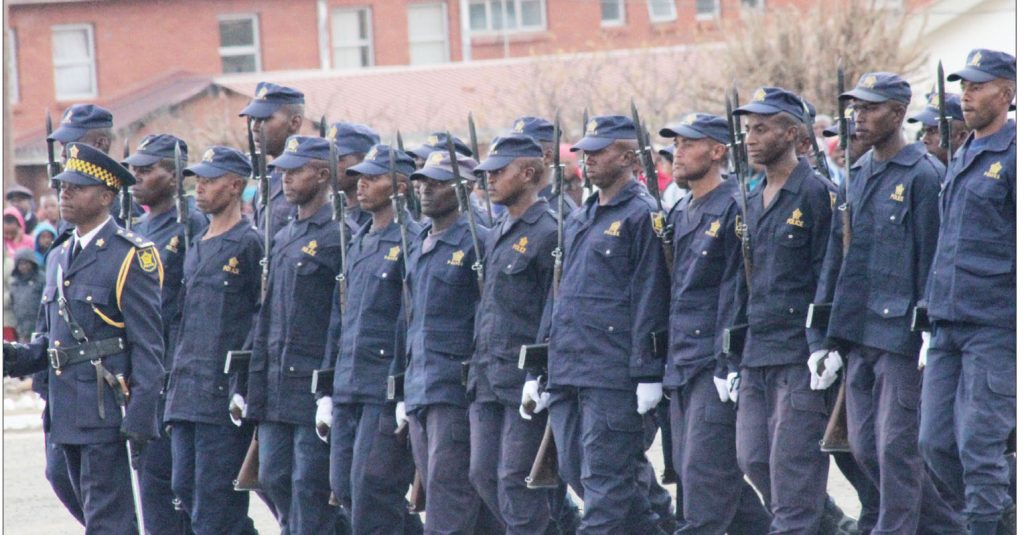 FORMER Prime Minister Thomas Thabane once told a Maseru newspaper, “Political stability requires the army to release its grip on politics and take a back seat. The army’s interference in the running of the country is at the root of the Lesotho security crisis.”
FORMER Prime Minister Thomas Thabane once told a Maseru newspaper, “Political stability requires the army to release its grip on politics and take a back seat. The army’s interference in the running of the country is at the root of the Lesotho security crisis.”
The depoliticizing process envisaged by the security chiefs of the Lesotho Defence Force (LDF) and Lesotho Mounted Police Service (LMPS) is doomed to fail. We need a professional police service and an army which is not controlled and divided by politicians.
We thought a fresh political dispensation would calm the situation and would depoliticize these institutions; in fact, the change of government has only served to exacerbate existing tensions. Therefore, the efforts to depoliticise these institutions won’t shoot the hare.
The job of the security forces does not exclude anyone from abiding by the law, in theory. In reality political influence over the armed forces has not allowed for the realization of this theory. Politicians’ meddling with the security forces is not something to ignore, as it has been the elephant in the Lesotho political room since the 1970s. The nerve-racking repercussions for the economy, security and integrity of the country armed forces are obvious.
The division and tension among the armed forces which persist even today, is the by-product of politicised control over national security and the root cause of the country’s security crisis which surfaced during the general election in May 1998. Lesotho has a long history of political instability that dates back to January 1986 when troops of the Lesotho paramilitary force, led by Major-General Justin Lekhanya deposed the then Prime Minister Leabua Jonathan’s government.
The August 2014 attempted coup again resulted in killings, looting and destruction of property, and involved a complex web of high level politicians and security chiefs.
Although the Lesotho security cluster’s infighting is the real threat to stability, regrettably political influence continues because troops are recruited under a political leader’s sway. When security bosses’ appointments and promotions are politically-motivated, they suffer politicisation as an incentive to join the politicians’ side.
Prime Minister Pakalitha Mosisili accused former police chief Khothatso Tšooana of incompetence, polarizing and for allowing police officers to partake in political activities and to support the prior ruling party under the leadership of former premier Thomas Thabane, because Tšooana was favoured by Dr Thabane. In the same spirit, Dr Mosisili reappointed Lieutenant-General Tlali Kamoli as LDF commander and risked losing the financial aid from development partners, perhaps even factory jobs and sanctions to save Lt-Gen Kamoli.
The 2015 census put the Lesotho population at approximately 2.10 million. Six out 10 people live below the national poverty line, with high unemployment rate among the youth which is estimated at 38 percent and most of these are graduates who are not able to get employment. Security forces are their only hope. Therefore, politicization of these institutions has made it impossible for non-card holders to get jobs within the security forces. Basotho youths have had relatively easy access to employment within security forces until recently. Now, recruitment into the police service and army is based on political affiliation, deliberately excluding those who are not card-carrying members.
The politicised troops are seen actively attending secret meetings affectionately known as “linakeli”. There is no hope, however, that security chiefs would separate wheat from chaff as the promotion on merit policy is not effective anymore, and meanwhile some officers are being promoted on the basis of their political affiliation and not on performance. Nothing is done about some personnel who are seen actively wearing political party attires and go around boasting about being loyal members of the ruling party. Those suspected of links to the prior ruling party, the All Basotho Convention (ABC), are victimized by their seniors and even transferred from urban to remote areas.
“Lately for you to be eligible for promotion within the police service, you must be seen active in political rallies or attend secret political meetings, linakeli,” said one of the concerned police officers who wanted to remain anonymous. This reduces the morale of dedicated compatriot police officers; they are now drowning in a sea of bitterness and anger. This tarnishes and threatens the integrity and effectiveness of service delivery for these two organisations.
Prominent lawyer Tumisang Mosotho tweeted on 6 May: “The government of Lesotho insists that the army is apolitical and professional yet it is embarking on security sector reforms. Why fix it if it’s not broken?”
Only feeble-minded people will believe the story of depoliticizing the security sector since both these institutions are being run and controlled by extremists whose mission is to misdirect the entire nation.
The security sector should be politically-educated and not politically-active.
The question that still remains is how can you depoliticize the same people you promote through their political affiliations? To simply answer this, there is no way politics can be removed in the security forces and we should not seek to.
Political Observer.


Time waits for no man